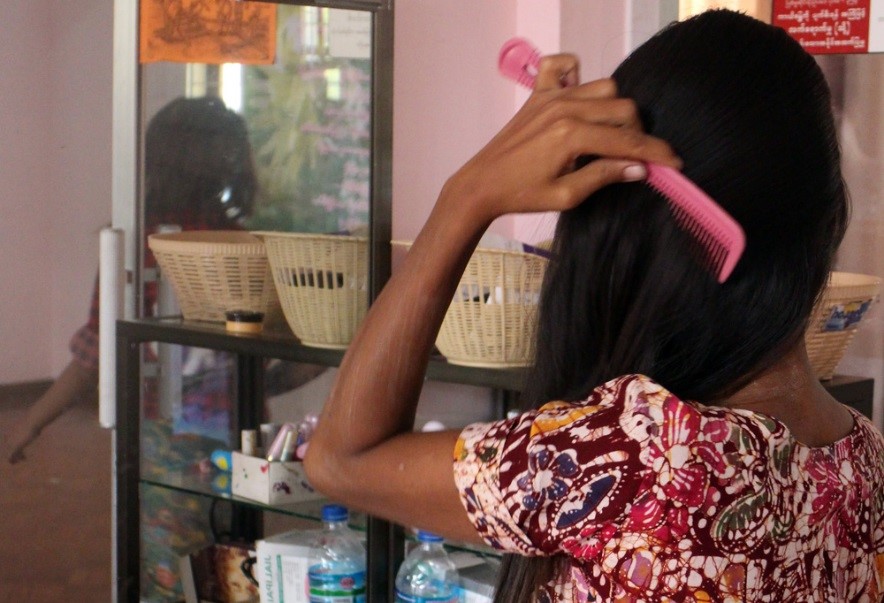
Generous Myanmar Mix readers have raised funds and created job opportunities for sex workers affected by the pandemic.
We ran a feature on the plight of Yangon’s sex workers, who are among the worst hit by Covid-19 restrictions. They said rising unemployment and fear of the virus have dramatically dropped the number of clients, wiping out their already meagre earnings.
We also spoke with women who had been forced into the sex trade because their factory workplaces had closed during the pandemic. They had entered a world of rape, violence and HIV because of desperation to feed their hungry children—a tragedy that we highlighted to a global audience for The Guardian.
After reading Myanmar Mix, a representative of EU fund Myan Ku quickly arranged 125,000-kyat cash relief and further monthly payments for three of the garment workers who had lost their jobs.
Working with women and children support group Pyi Gyi Khin, the project also has doctors and mental health specialists to help the women.
“The donations covered my rent,” said *Kyine, 30, who cares for her two young children and financially supports her mother. “I’m able to look for other jobs now; I am planning to sell vegetables in my local market.”
Myan Ku has now adjusted its eligibility criteria to include former garment workers as well as garment workers who have lost their jobs in recent months due to the pandemic.
A volunteer of local charitable group Women 4 Women who asked for anonymity also contacted Myanmar Mix. The group will provide three of the 10 interviewees with food, toiletries, contraception and other basic necessities, along with cash instalments for three months and job guidance.
“Our project is very simple,” said the volunteer. “We aim to pull those girls from that work and help them get a stable job."
Hnin Hnin Yu, founder of local advocacy group Sex Workers in Myanmar (SWIM), said she received a flood of donation inquiries from Japan, Vietnam, the UK and European countries after the feature was published. She also received donations from foreign nationals based in Yangon that she distributed to the women.
“I am very glad this issue has got a lot of attention after the article was published,” she said. “Now it feels like the entire country is aware of it. Since the article was really impactful, it won’t just be a passing moment. I’m using this momentum to apply for other financial support as well."
*Names of the sex workers have been changed. The Yangon chapter of charity Food Not Bombs organises regular food and cash donations to marginalised groups in Myanmar, including sex workers. To donate, contact them through Facebook.

